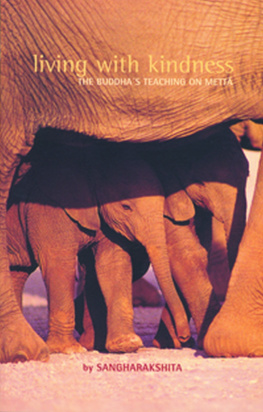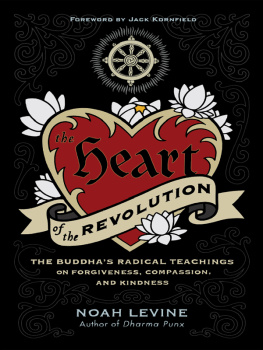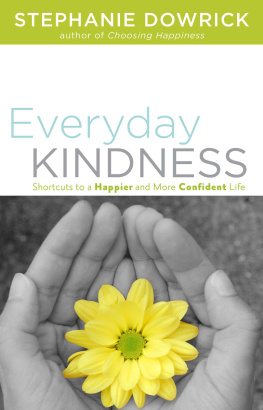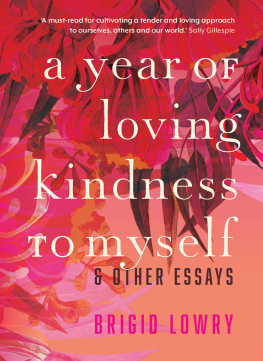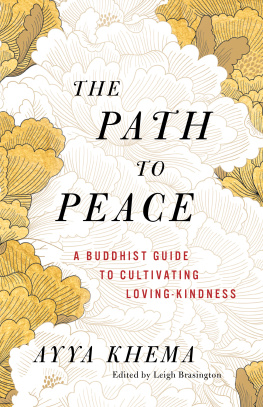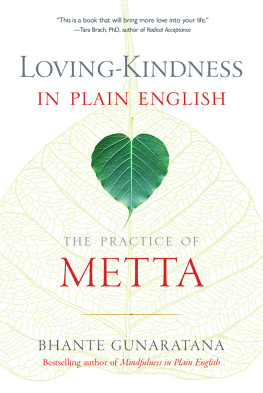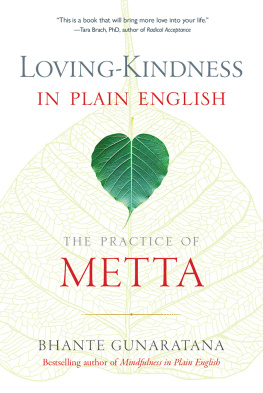
Table of Contents
Living with Kindness
The Buddha's Teaching on Mett
Sangharakshita

Published by
Windhorse Publications
169 Mill Road
Cambridge
CB1 3AN, UK
email: info@windhorsepublications.com
web: www.windhorsepublications.com
Sangharakshita 2004
First Edition 2004
Second Edition 2008
Reprinted 2012
Electronic edition 2012
The right of Sangharakshita to be identified as the author of this work has been asserted by him in accordance with the Copyright, Designs and Patents Act 1988
Cover design by Marlene Eltschig
Cover image courtesy of Digital Vision / Robert Harding
British Library Cataloguing in Publication Data:
A catalogue record for this book is available from
the British Library
Paperback ISBN-10:1 899579 64 8
Paperback ISBN-13:987 1 899579 64 8
epub ISBN: 978-1-907314-65-0
kindle ISBN: 978-1-907314-64-3
A Windhorse Publications ebook
Windhorse Publications would be pleased to hear about your reading experiences with this ebook at info@windhorsepublications.com
References to Internet web sites (URLs) were accurate at the time of writing. Neither the author nor Windhorse Publications is responsible for URLs that may have expired or changed since the manuscript was prepared.
About the Author
Sangharakshita was born Dennis Lingwood in South London, in 1925. Largely self-educated, he developed an interest in the cultures and philosophies of the East early on, and realized that he was a Buddhist at the age of sixteen.
The Second World War took him, as a conscript, to India, where he stayed on to become the Buddhist monk Sangharakshita. After studying for some years under leading teachers from the major Buddhist traditions, he went on to teach and write extensively. He also played a key part in the revival of Buddhism in India, particularly through his work among followers of Dr B.R. Ambedkar.
After twenty years in India, he returned to England to establish the Friends of the Western Buddhist Order in 1967, and the Western Buddhist Order (called Trailokya Bauddha Mahasangha in India) in 1968. A translator between East and West, between the traditional world and the modern, between principles and practices, Sangharakshitas depth of experience and clear thinking have been appreciated throughout the world. He has always particularly emphasized the decisive significance of commitment in the spiritual life, the paramount value of spiritual friendship and community, the link between religion and art, and the need for a new society supportive of spiritual aspirations and ideals.
Sangharakshita has now handed on most of his responsibilities to his senior disciples in the Order. From his base in Birmingham, he is now focusing on personal contact with people, and on his writing.
Preface
When the Dalai Lama was recently asked about the nature of his beliefs as a Buddhist he replied, My religion is kindness, and there can be few Buddhists who would argue with that as a sound-bite definition of Buddhism. So how can this rather humdrum human response form the basis for a religious faith?
The quality he referred to as kindness is indeed central to all forms of Buddhism, but most Buddhists prefer to use the more precise and penetrating traditional term for it: maitr (Sanskrit) or mett (Pli). What really distinguishes mett from what we usually think of as basic human kindness is that mett is a quality developed through practice, specifically the practice of the mett bhvan meditation the cultivation of universal loving kindness. As such, mett is potentially boundless in its scope. There is no limit to how far you can take it.
At the same time, mett is always rooted in that basic quality of ordinary human kindness. Just to reach out of ones self-absorption, however momentarily, and connect with the life around one, is to muster the basic ingredients one needs to perform this meditation. The cultivation of the inner life can become somewhat self-referential, if not alienating, without this practice, and as Sangharakshita emphasizes in the pages that follow, it is effective only if it translates back into ordinary human kindness.
Sangharakshita himself is certainly well qualified to talk about mett, both in its theory and its practice. Throughout his life he has read widely, studied assiduously, and reflected deeply. At the same time, despite his personal inclination to a life of quiet reflection and study, he has always worked for the welfare of others, both in India, especially with Dr Ambedkars mass conversion movement of ex-Untouchables in the 1950s, and in the West, with his founding of the Friends of the Western Buddhist Order.
It is always hard to pin a Buddhist down to anything like a credo. Sangharakshita would for example probably differ from the Dalai Lama on one or two issues. However, he long ago made a clear statement of his faith, in which he can be seen to follow very much the same spiritual impulse that the Dalai Lama would one day acknowledge as the key principle of his own life, encapsulated in the idea of mett. In a booklet published in 1986 Sangharakshita writes:
We have assembled this book mostly from the transcript of a seminar on the Kara ya Metta Sutta the classic Buddhist text on the subject of mett led by Sangharakshita in July 1978 at Padmaloka retreat centre. As usual with books compiled from Sangharakshitas lectures and seminars, we have deliberately retained Sangharakshitas relaxed delivery in order to make a clear contrast with the literary finish of his written work. The reader should bear in mind that while Sangharakshita still checks and corrects the books that are published in this way, the result is nothing like a book he would have written on the subject himself. The emphases are inevitably determined by the seminar participants and their particular concerns. Equally inevitably, the discussion is more discursive than one would normally expect from a book written in the usual way.
However, it is probably true to say that Sangharakshitas boldest and most radical teaching is contained in his lectures and seminars. This is certainly where he has made his greatest impact on the lives of ordinary people, both in India and in the West. And there is always the added bonus of the anecdotes he draws from his colourful life or his very wide reading.
There are many English translations of the Kara ya Metta Su tta available today, including a poetic rendering by Sangharakshita himself. However, when the seminar was conducted, there were a limited number to choose from. F.L. Woodward had produced both a prose version and one in blank verse, and there was also a translation by Robert Chalmers in print. The one used in this seminar was by Saddhatissa. In common with Woodwards approach, Saddhatissas language follows the usual custom of his time with regard to translations of Buddhist texts, in being archaic and dignified in its vocabulary and rhythms, without detracting from the simplicity and clarity of this beautiful sutta.
The editors are grateful to Vidyadevi, Khemavira, Dharmashura, and Leah Morin for invaluable assistance in moving this book towards publication.
Jinananda and Pabodhana
June 2004
Kara ya Metta Sutta
He who is skilled in his good, who wishes to attain that state of calm (Nibbna), should act thus: he should be able, upright, perfectly upright, of noble speech, gentle, and humble.
Next page
